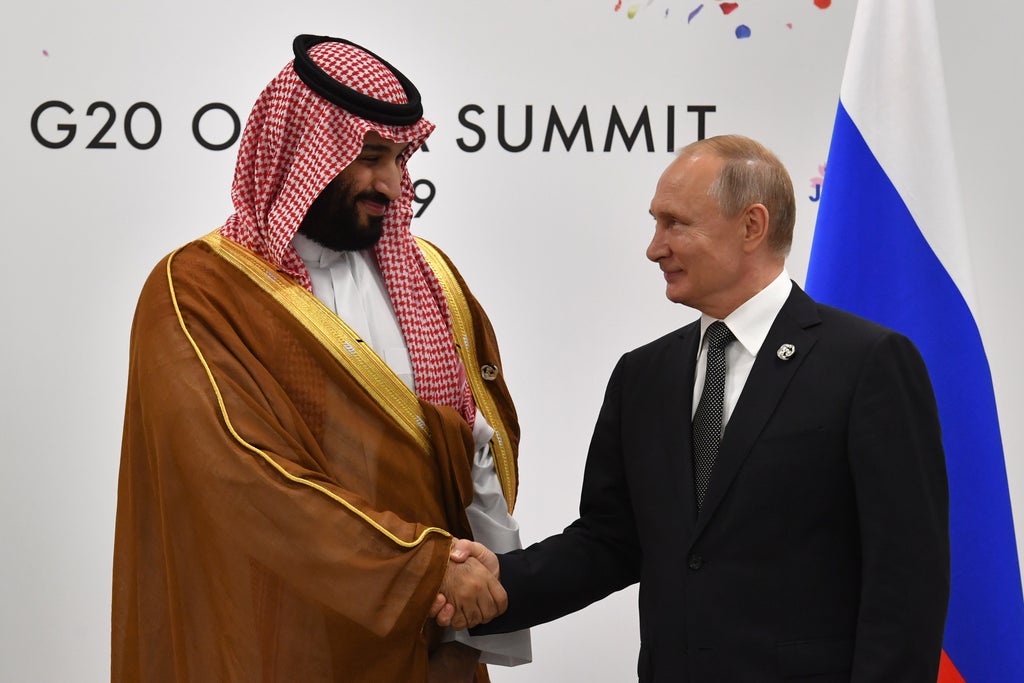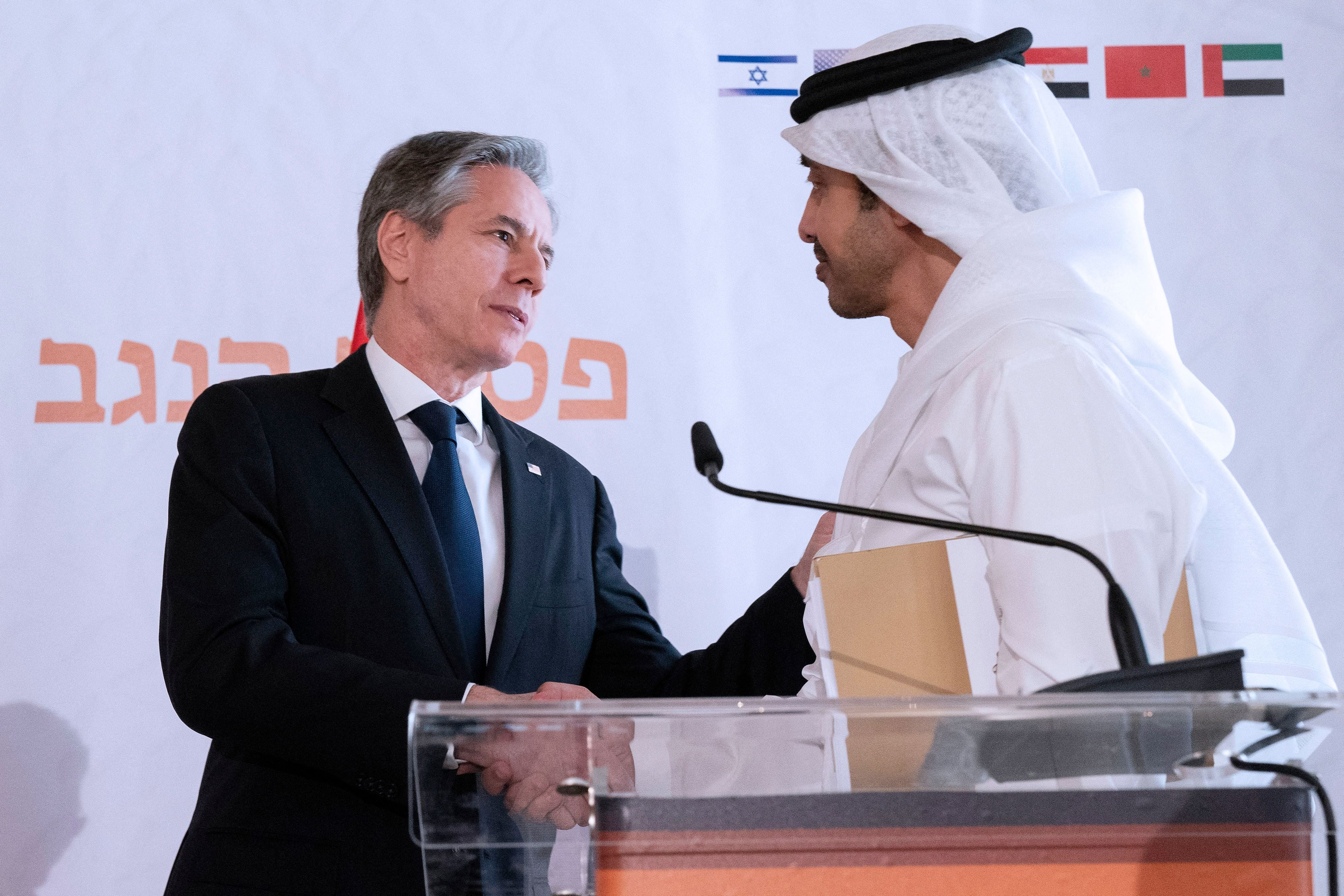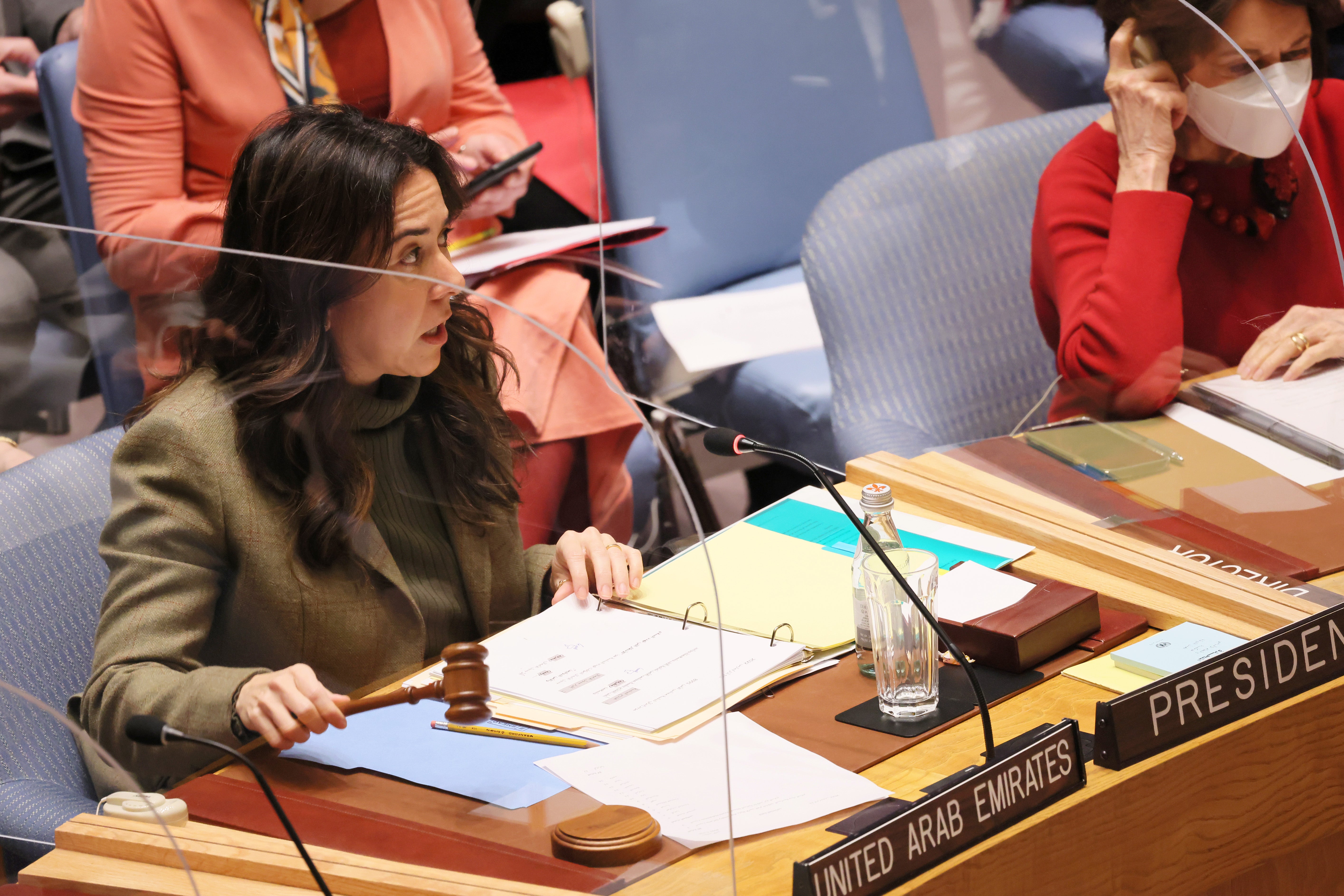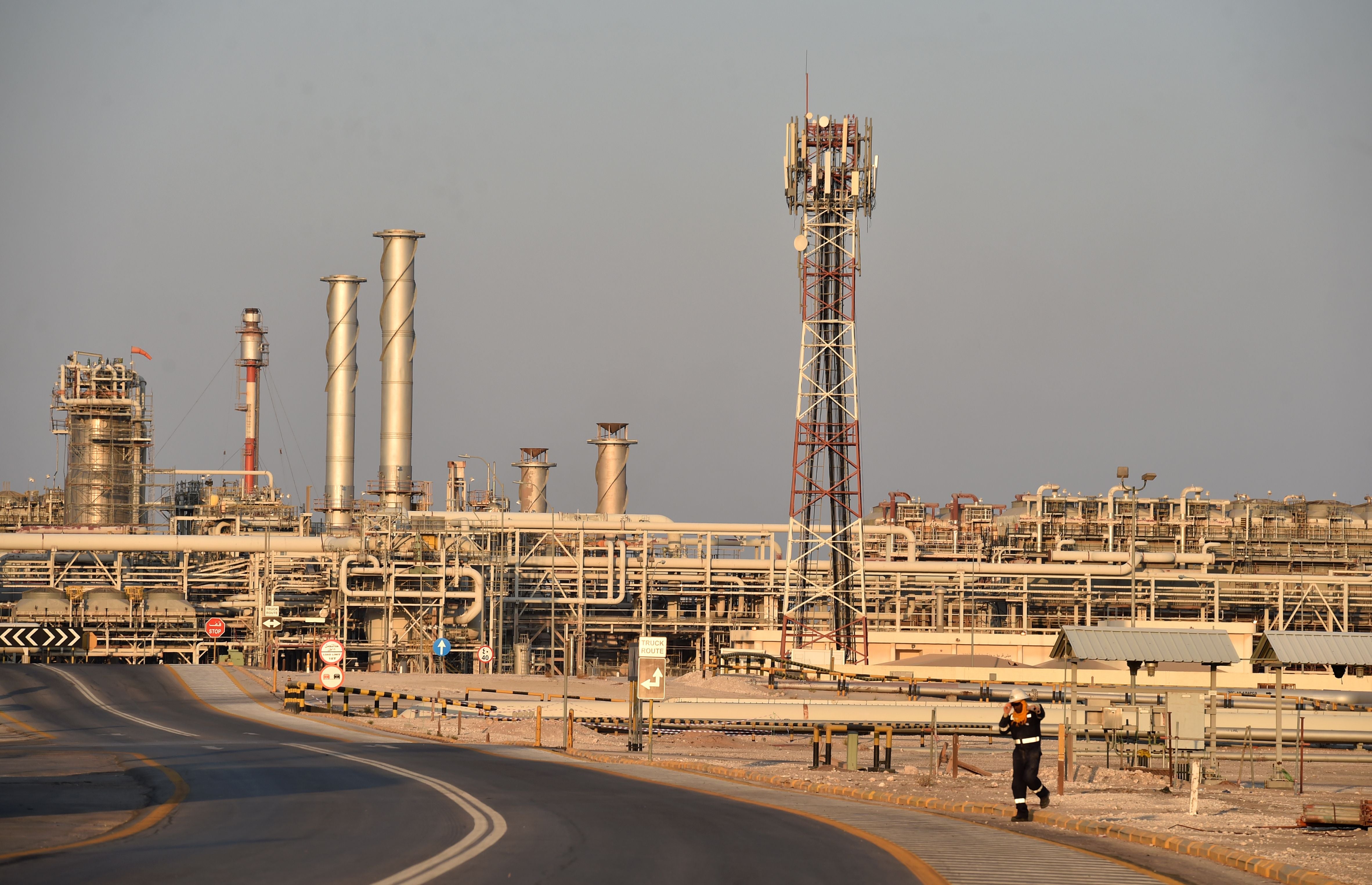
For decades the west has wined and dined the oil-rich autocrats of the Arabian peninsula, welcoming them to purchase football clubs and even win access to the political elite while selling them advanced weapons and buying up their gas and oil.
But at a crucial juncture in European history, with Russia attacking Ukraine and threatening the entire post-Second World War security order, the Gulf states are nowhere to be found.
The west has been unable to count on the United Arab Emirates’ vote at the UN to condemn the invasion; and during Thursday’s vote to remove Moscow from the UN’s Human Rights Council after its alleged war crimes in Ukraine, all of the Gulf states abstained.
The west has been unable to get them to ramp up oil and gas production to stave off the effects of removing Russian energy from the markets. It has been unable to convince them to abide by sanctions, or even to bar Russian oligarchs close to Vladimir Putin from parking their cash and yachts in the Gulf’s glittery cities.
US president Joe Biden has been unable even to get the leadership of Saudi Arabia or the UAE on the phone, according to news reports.
“There seems to be this hubris in Washington that Saudi Arabia and UAE are proxies or allies or partners,” says Andreas Krieg, a Persian Gulf specialist at King’s College London. “But what the US is waking up to is a reality in which Saudi and the UAE are playing their own game.”
In part, many in the Middle East shrug off the images of fleeing families, bombed-out cities and butchered civilians. In contrast with Europe, they have been living with such brutality in their region for decades, including in Iraq, Syria and Yemen.
But their ambivalence towards the tough stance taken by the west on Russia’s invasion of Ukraine also underscores the Kremlin’s success in building Middle East inroads over the last decade. Moscow has an especially close relationship with the UAE, and the two countries find themselves partnered in overseas gambits across Africa and the Middle East. Meanwhile, the US is vocally and actively seeking to disengage from the Middle East.

“The relationship is really strained and fractured under some recent policy shifts under Biden, and under previous administrations,” says Adam Lammon, a Middle East fellow at the Centre for the National Interest, a Washington think tank, and executive editor of The National Interest.
“The perception is that the US is sort of shifting away from their security concerns. They’re feeling the relationship isn’t the way it used to be, and they’re seeing it as a trend rather than a series of one-off decisions.”
The ties between Russia and the Gulf are deeper than many in Washington imagine. The UAE allegedly hired the shadowy Kremlin-linked Wagner Group of mercenaries to conduct combat operations in support of warlord Khalifa Haftar in Libya, a relationship that suggests far-reaching security cooperation at the highest echelons.
Russia, long term, is the more sustainable partnership than the US
Russian Chechen warlord Ramzan Kadyrov, who allegedly keeps a $7m (£5.4m) villa in Dubai, has been providing military training and muscle for the UAE’s armed forces and has served as a Kremlin envoy to the autocratic regimes of the Muslim world.
The UAE has invested millions in development projects in Chechnya, including the massive Grozny Mall and 100-floor luxury Akhmat Tower. During a 2018 visit, Mr Kadyrov and UAE’s de facto ruler, Crown Prince Mohammed bin Zayed, were photographed embracing affectionately.
“The very authoritarian verson of Islam touted by both Checnhya and UAE draws them close together,” Mr Krieg tells The Independent.
In a leaked diplomatic cable that was later rescinded, the US state department urged diplomats to consider the UAE along with India as being “in Russia’s camp” with regard to the Ukraine conflict, after both countries abstained on a UN Security Council vote to condemn the Kremlin’s war.

“Continuing to call for dialogue, as you have been doing in the Security Council, is not a stance of neutrality; it places you in Russia’s camp, the aggressor in this conflict,” said the note, which was obtained by the news website Axios.
The UAE defended its votes at the Security Council by insisting that “taking sides would only lead to more violence”.
Both the UAE and Saudi Arabia value their western ties, and both welcomed UK prime minister Boris Johnson when he visited in mid-March.
But Abu Dhabi’s leadership likely feels that it can get away with a large degree of straying from the American line after signing the US-sponsored Abraham Accords, which normalised its relations with Israel and won it plaudits from pro-Israel lawmakers in Washington.
“Its decision to make peace with Israel gives it a lot of leverage in Washington, and won it a lot of friends in Congress,” says Giorgio Cafiero, of consulting firm Gulf State Analytics.
Relations between Saudi and Washington have remained frosty since the beginning of the Biden presidency. While he was running for office, Biden called out Saudi’s Crown Prince Mohammed bin Salman as a brutal dictator. Riyadh opposes Washington’s efforts to revive the 2015 nuclear deal with Iran, which is an arch-foe of Saudi Arabia.
“The flaws in the deal are well known,” pro-Saudi commentator Mohammed Alyahya wrote in The Jerusalem Post last month. “It paves a path for Iran to a nuclear bomb. It fills the war chest of Iran’s Islamic Revolutionary Guard Corps. Most importantly, to its authors, the deal takes the United States out of the business of containing Iran.”
There are also economic interests involved. Middling powers such as Saudi Arabia and the UAE likely sense that they cannot afford to alienate Russia too much, while they hold leverage over Washington with various lobbying efforts. Even Qatar, which is more amenable to the western position on Russia, has been cautious about criticising the Kremlin.
Though not a member of Opec, Russia is a partner to the oil cartel and could upend price projections by boosting or cutting production. The UAE and Russia partner on port and other infrastructure projects across Africa.

“In the end they are looking out for their own strategic interests and placing their own security and economy ahead of the wishes of the United States,” says Mr Cafiero. “The UAE has been aligning more closely with the agendas of Russia and China at the expense of the US for years.”
Between Putin and the Gulf monarchies there is also an ideological convergence. Russia and the Arabian peninsula monarchies are suspicious of democracy and mass politics, and seek total control over media and civic life. Meanwhile, any transaction – whether economic or geopolitical – with the US or Europe is potentially fraught with media attention and public scrutiny of Gulf human rights records.
“The difference in democratic norms and values has always been a fracture point and has always prohibited closer ties,” says Mr Lammon.
The Gulf monarchies are betting that Putin will remain in power for years to come, while Biden may be on his way out of the White House on 20 January 2025.
There is a perception also that Russia stands by its allies over decades, as it supported Bashar al-Assad in Syria, while the US is fickle and undependable, as when it allowed Egypt’s Hosni Mubarak to fall in 2011.
“Russia, long term, is the more sustainable partnership than the US,” says Mr Krieg. “The US is not reliable. It makes a U-turn every four years. The perception is that Russia is a country that you can rely upon.”







